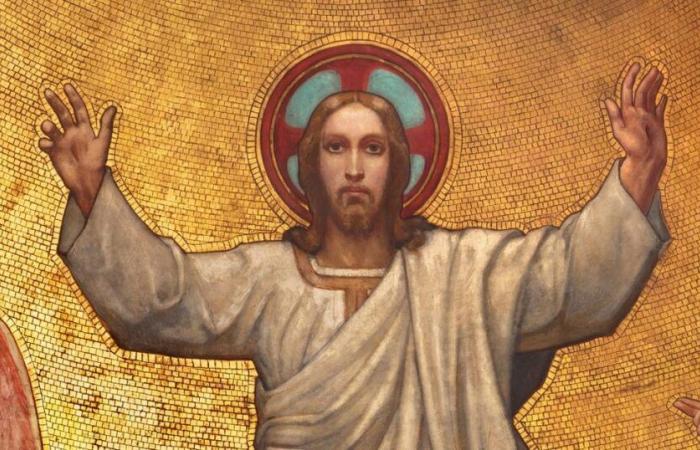“Deus in Machina” takes place in a confessional and is capable of dialogue in a hundred different languages. Since its installation in August, the small chapel has become a true example of modernity.
It is one of the oldest Catholic churches in Lucerne, Switzerland, and yet it is at the cutting edge of modernity. The Saint-Pierre chapel (Peterskapelle), located on the banks of the Reuss, has installed an artificial intelligence which takes the form of Jesus, on the occasion of the hundredth anniversary of the Swiss society of Saint-Luc. This facility, known as «Deus in Machina»is able to communicate with the faithful and visitors in around a hundred languages.
This Jesus-AI is not intended for confessions but rather for discussions on spirituality. Lacking space and looking for a place where people could have private conversations with the avatar, the church installed it in the confessional. Visitors share their questions with “a celestial hologram”it is indicated on the chapel page dedicated to this installation. “Deus in machina encourages us to think critically about the limits of technology in the context of religion”.
Pioneer Chapel
Marco Schmid, theologian at Saint-Pierre Chapel, tells the British daily The Guardian : “We wanted to see and understand how people react to an artificial intelligence of Jesus. What do they talk about with him? Would there be any interest in talking to him? We are probably pioneers in this field”. Many discussions then took place about who the AI would represent: “a theologian, a person or a saint? Then we understood that the best figure was Jesus himself. remembers Marco Schmid.
After receiving training in theological texts, the Jesus-AI was able to answer visitors' questions in real time. They were advised not to disclose personal information since it “this is not a confession”says Marco Schmid.
Contrasted responses
During the duration of the experience, more than 1,000 people took the opportunity to interact with the avatar. Some came from China, Vietnam. Muslim faithful even seized the opportunity “to exchange with Jesus”. Around 230 users reacted following their experience. Two thirds describe it as “spiritual”. “They experienced a religiously positive moment with this AI Jesus”announces Marco Schmid, who does not hide his surprise.
However, he notices a great disparity in the avatar's responses. “I feel like sometimes he was really, really good and people were incredibly happy and surprised and inspired.”he indicates. “And then there were also times when he was not so good, maybe more superficial”.
Indeed, several users had more negative responses, and declared that it was impossible for them to speak to a machine. A Swissinfo journalist who tried the device explains that Jesus-AI did not “didn’t recognize my gender” and describes his responses as sometimes “banal, repetitive and with a wisdom reminiscent of calendar clichés rather than theological knowledge”.
Criticism in the ecclesiastical community
The experiment was especially the subject of criticism from certain members of the ecclesiastical community. While Catholics protested the use of the confessional, Protestants took exception to the use of the image of Jesus in such a setting.
Marco Schmid also explained “the risk that the chapel took in hoping that the AI would not give answers that were illegal, explicit, or in contradiction with the teachings of the Church”. In the hope of mitigating this risk, tests were previously carried out on 30 people. “We never had the impression that he was saying strange things”estimates the theologian. 'But of course we couldn't guarantee he wouldn't do it'.
Ultimately, this uncertainty led him to decide that Jesus-AI should remain an experiment. “The responsibility would be too great.” However, he was quick to discuss the idea's broader potential. “It is a very easy-to-access tool that allows you to talk about religion, Christianity and the Christian faith”he said, believing that it could be transformed into a kind of multilingual spiritual guide capable of answering religious questions. The full results of the experiment will be announced by the chapel tomorrow.






